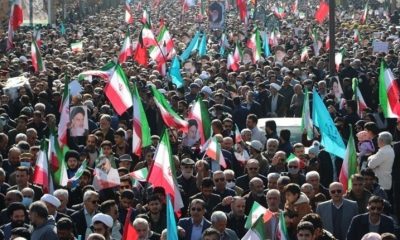Islam
Islam and globalization, interaction or confrontation?
In the 21st century, societies find themselves in a situation where, without paying attention to the external environment beyond their borders and gaining a proper understanding of it, they will not be able to accurately comprehend their living conditions and circumstances. No society can, on its own and without interacting with the global community, give meaning and continuity to its social life. In this regard, ideas, cultures, attitudes, and political, cultural, and social activities transcend national borders, disperse on a global scale, are influenced by various perspectives, and, in turn, exert an influence on them. All of these issues are under the influence of the processes of “globalization.” From this perspective, globalization, in its political, cultural, and communicative dimensions, brings about consequences and results that can provide opportunities for different ideologies in various societies. What opportunities does globalization provide for Shia political Islam? Shia political Islam, too, has found the possibility of benefiting from the opportunities of globalization in the global context.
Despite differences in the definition of globalization (whether as a process or a project), one common point is that it has technological and ideological dimensions that have manifested in various forms of communication, and political, economic, and cultural relationships. It refers to a process in which, due to the compression of space and time, people in a global society are relatively consciously integrated. Consequently, many political, geographical, social, cultural, and economic constraints have either disappeared or faced significant changes, creating opportunities for various societies.
The technological dimension of globalization involves the expansion of communication and information technologies. This is a result of the production of communication technologies, information, and commercial needs of countries through the internet, satellites, and computer software. Borders are no longer significant, and everyone is considered a consumer. People from any part of the world can access information directly and understand what is among the preferences of other countries. The expansion of communication technology on both the level of nations and governments, in general, offers opportunities for Shia political Islam. On the level of nations, one consequence is the reduction of perceived distances. Increasing information and group media empower individuals to understand that the concept of national entities like traditional nation-states is becoming less relevant, and geographical borders give way to borders with informational capabilities. From this perspective, globalization eliminates geographical boundaries in cultural, political, and social relations and can bring Muslims closer to their nationality and ethnicity. Innovative technologies can transform beliefs, values, and the mental imagery of the audience, extending the mindset of Muslims beyond the national society to create a positive image of their shared life and future. This can foster a sense of unity among Muslims and encourage cooperation. It can also generate a need for unity among Muslims, especially when the Western discourse of liberalism emphasizes globalization and, according to Giddens, “top-down globalization,” pushing it forward. Islamic countries also see the necessity of forming larger groups to prevent economic, cultural, and political collapse. Communication technologies can create this need in both governments and Muslim nations, making them understand that it is essential to shape certain regions of Islamic countries to counter the challenges posed by globalization. Consequently, Islamic regionalism is established. From this perspective, regionalism is considered a bulwark against liberal globalization, and all countries, including Islamic countries, can move toward it in the face of globalization.
Globalization also results in the formation and spread of specific cultures on a global scale, primarily due to cultural awareness and cultural and civilizational exchange. Giddens believes that the meaning of globalization is not that the global society is becoming homogeneous in the sense of Anglo-American culture. Instead, in some aspects, globalization involves differentiation, alongside unity. In other words, globalization is not about the global society becoming uniform with Anglo-American culture, but rather, in some dimensions, it involves diversity. This is where we can also witness the reproduction of cultural identities such as Islamic identity. From this perspective, globalization is the process of promoting cultural homogenization worldwide or westernizing global culture. In this regard, globalization includes an intention to homogenize culture worldwide or Westernize global culture. In this sense, globalization eliminates borders in cultural, political, and social relations and can lead to the convergence of cultural values worldwide and challenge the cultural identity of non-Western cultures, commonly referred to as Western cultural imperialism. Thus, globalization is viewed as a tendency toward cultural homogenization in the world or Westernization of global culture. These dimensions of globalization can offer opportunities for Shia political Islam to thrive on a global scale by utilizing technological advancements for communication and reinforcing cultural identity in the face of cultural globalization pressures. Globalization, in its economic, political, cultural, and communicative dimensions, has various consequences, leading to opportunities for different societies. In this context, Shiite political Islam has found room for expression. In summary, the aspects of globalization can be categorized into four levels:
1. Technological and Communicative Dimension: Innovative technologies can expand the mindset of Muslim nations beyond the national context, creating a positive image of life, destiny, and a common future. This can foster unity in the Islamic world.
2. Economic Dimension: While globalization can provide economic opportunities for various societies, the Islamic economic system, based on a theoretical foundation that contradicts globalized economics rooted in liberalism, presents a challenge. Islamic economics aims to establish efficient economic relationships with social justice, thereby limiting absolute ownership and defining boundaries to prevent poverty.
3. Cultural Dimension: Globalization provides an opportunity for the introduction of various ideas and discourses. Cultures that might not have had a platform to share their ideologies can do so in the age of information technology. Islamic culture, with its rich inner dimensions, gains prominence through globalization, allowing the dissemination of Islamic thought to broader human societies.
4. Political Dimension: Shiite political Islam claims it can utilize its soft power resources while adhering to its values to make elements of Shiite Islamic philosophy known. It aims to respond to the challenges of the modern world and the universal values of the Islamic religion, introducing Shiite Islamic thought on a global scale.
In conclusion, globalization brings both opportunities and challenges to societies worldwide. For Shiite political Islam, it provides an opportunity to promote its values, ideas, and culture on a global stage, even as it faces conflicts with the dominant Western cultural, political, and economic values. Shiite political Islam seeks to maintain its cultural identity and religious values while navigating the globalized world.

You may like
-


Iranian People Unite to Condemn Rioters, Defend Islamic Republic
-


‘Israel is always looking for a new war against Hezbollah’
-


‘Terrorism—the intentional targeting of innocent civilians—is incompatible with jihad’
-


‘Islamophobes perpetuate the myth that Muslims are plotting to overtake the West’
-


‘BDS will grow as Western continue their craven subservience to Israel’
-


SURA 98. Baiyina, or The Clear Evidence


Iranian People Unite to Condemn Rioters, Defend Islamic Republic

Fact Check: Did Iran Introduce a $7 Payment to Quell Recent Unrest?

‘Israel is always looking for a new war against Hezbollah’

‘Terrorism—the intentional targeting of innocent civilians—is incompatible with jihad’

‘Islamophobes perpetuate the myth that Muslims are plotting to overtake the West’

‘Terrorism—the intentional targeting of innocent civilians—is incompatible with jihad’

Fact Check: Did Iran Introduce a $7 Payment to Quell Recent Unrest?

Iranian People Unite to Condemn Rioters, Defend Islamic Republic

‘Israel is always looking for a new war against Hezbollah’

Trump’s Worst Nightmare: How a Muslim Mayor Is Reshaping New York—and Challenging the Status Quo

Italian journalist participates in Arbaeen, Iraq

Qisas In Islam

Since the start of 2024; info motion

Quince, Iranian Traditional Medicine (ITM)

